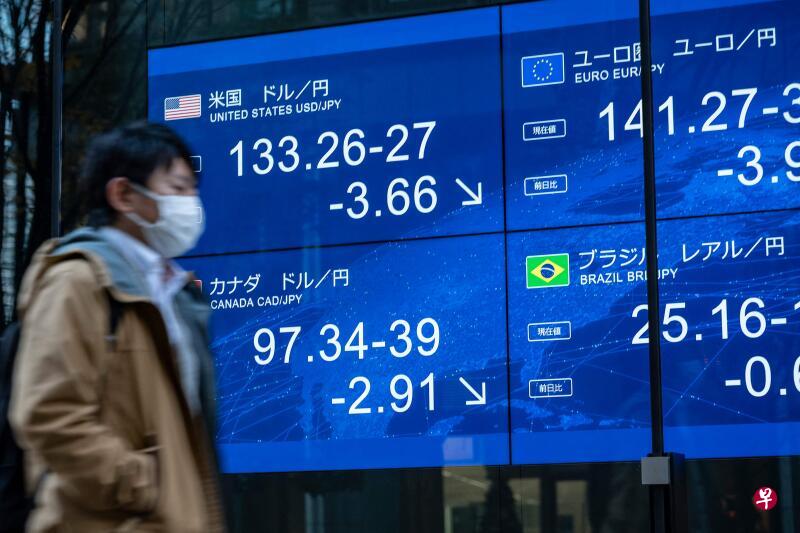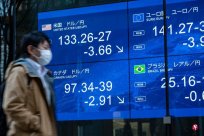
The Central Bank of Japan is beyond the market and expects to adjust monetary policy, allowing long -term bond yields to rise, driving the yen to rise, and local stock markets have fallen.The market depends on this adjustment of Japan's end of the era of super loose monetary policy.
The Bank of Japan has maintained a super loose monetary policy in the past 10 years. Even if the central banks from all over the past year have raised interest rates to inhibit inflation frequently, Japan still has remained motionless.
Such a situation is unexpectedly changed on Tuesday (December 20).After two days of policy meetings, the Bank of Japan announced that it will relax the range of 10 -year bond yields to fluctuate to improve market operations.
The policy statement of the Bank of Japan said: "The central bank will relax the range of 10 -year government bond yields from 0.25 percentage points from positive and negative 0.5 percentage points."
After thestatement was issued, the yen responded, and the US dollar fell from the highest 137 yen to 133 yen in a few minutes.As of 6:30 pm local time, the US dollar reported to the yen at 132.48, a 3.2 % fall.
The Japanese stock market plummeted due to the accident of the central bank.In the morning, the Nikkei 225 index was maintained in the morning. After the opening of the market at noon, it fell and fell 2.46 % throughout the day.
Hong Kong, Shanghai and Australian stock markets have fallen more than 1 %, the Korean stock market fell 0.80 %, and the Singapore stock market was flat.As of 6:30 pm local time, Germany, Britain and French stock markets fell 0.10 % to 0.70 %.
The Bank of Japan still maintains a short -term interest rate of 0.1 %, and announced the expansion of debt purchase plans, from 7.3 trillion yen (about 74.6 billion yuan) to 9 trillion yen per month.
Shane Oliver, chief economist of AMP Capital, said: "Theoretically, this time is not to tighten the monetary policy because the yield target is still zero, and the Bank of Japan stated that it will increase bond purchase power.However, many people think that this is the direction of tightening the policy, so the yen has soared and the global stock market has fallen. "
Japan Central Bank emphasizes non -interest rate hikes
Kuroda Kuroda Kuroda, the governor of the Bank of Japan, emphasized at a press conference: "Today's resolution aims to improve market operations, thereby helping strengthen the effect of currency easing policy. Therefore, this is not a rate hike.
"This adjustment will enhance the sustainability of our monetary policy framework. This definitely does not mean that we will give up the policy of yield curve control (YCC for short) or end this policy."
Kuroda Dongyan, who took office in 2013, ended in April next year.Economists believe that after the adjustment indicates that the new president takes office, the monetary policy may change further.
Mizuho Securities Chief Marketing Economist Yasunari Ueno said: "The Bank of Japan's sudden change of policy will strengthen market guessing, that is, YCC may suddenly end."
In order to stimulate economic growth, the Bank of Japan has maintained interest rates at a close zero in the past six years.
The central bank targets the 10 -year national bond yield to zero, and acquires bonds from the open market, limiting the yield to less than 0.25 %.However, when the global interest rate enters the rising cycle, the yield of Japanese Treasury bonds is also facing the pressure of rising.
The Ultra -low interest rate policy of the Bank of Japan and the practice of incomplete purchases of bonds in order to defend the rate of yields have caused more and more criticism.This not only distorted the yield curve, but also caused the liquidity of the national bond market, the decline in the yen, and the cost of imported raw materials.


